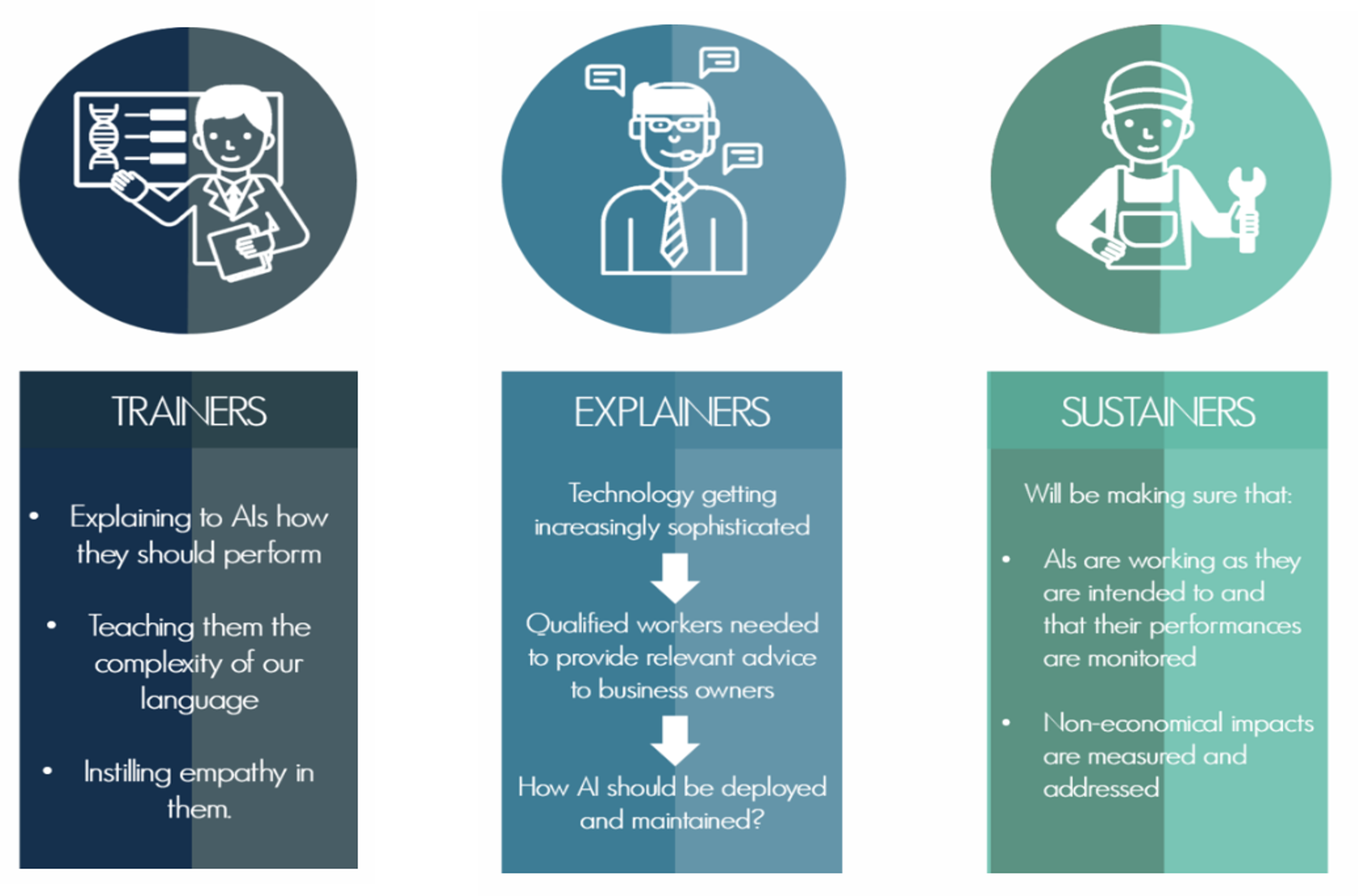Some predict that, in the near future, the world will be run by AI robots, even Liverpool football team! The thing about AI is that it is only as good as the input it is given. For example, ChatGPT couldn’t give answers to any questions you ask it, without those answers being previously written by humans such that it could trawl those articles for appropriate results.
Does this mean that all of our jobs will disappear? All journalism is dead? We have passed the Turing test and the next level is the Singularity by 2045 or before*? I don’t think so. We are a long way from machines running Earth. For example, another slide that I use regularly in my presentations is the jobs of the future, when we have full AI and robotics. Those jobs are trainers, explainers and sustainers.

Source: MIT Sloane Review
More than this, there will always be a role for human counselling. In future, emotions will be the things that machines will find hard to automate. We may have relationships with robots, but they won’t be same as our relationships with friends and family. After all, most machines can emulate emotions but they’re only going to be as good as the trainers, explainers and sustainers programmed it for.
Think of it a different way: where is your off button?
Maybe you feel you do have one – I often say my battery has run out – but we wake up regardless. When the machines batteries run out, who is going to recharge them?
You may wonder: what’s all this got to do with banking and finance, Chris? Well, what happens if our machines have no electricity, no generator, no battery and someone has hit the off button? That’s the core of the cyberwars of the present and the future.
Similarly, what happens if the programs go wrong? We see a flash crash, and we fix it, but what happens if we can’t? In a decade or two, when we have quantum computing and widespread blockchain ledgers, will we even be able to read today’s systems and understand a client’s historical investments and portfolios?
These are all valid questions in my own head, but the main one is where I started: a machine is only as good as the humans that made it. A machine needs a human trainer and sustainer and, if that is missing, it will find it hard to succeed in the long-term, even with machine learning. A machine needs power to survive and exist. Without recharging, it will run out of road. And, even with all of those points in place, can a machine explain to me why my head thinks this way? Will machines be psychologists, psychotherapists, relationship counsellors and therapists? Can they provide mentoring, coaching, leadership development and other human-based emotional intelligence? How will that work?
As an active proponent of technology and digitalisation, I still believe there are limits of how far we automate society and our structures and relationships whilst, specifically, I always want my machine to have an off button that I can find.
*POSTSCRIPT
The Turing Test is attributed to the British scientist Alan Turing. In 1950 he predicated that you would get to a stage of machine intelligence equivalent ot our own. The test is whether a machine really has the ability to exhibit intelligent behaviour equivalent to, or indistinguishable from, that of a human.
The Singularity is a future point in time at which technological growth becomes uncontrollable and irreversible, resulting in unforeseeable changes to human civilization because machines can maintain and run themselves, with no need for human involvement or interaction.
Related: CBDC or Cryptocurrency … It Is Your Choice or, Rather, Your Belief

